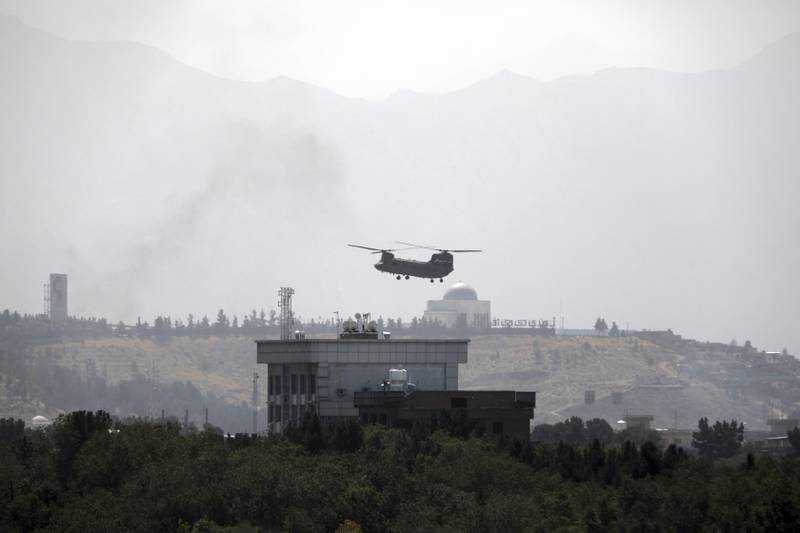Where Nato goes next: alliance urged to beef up intelligence after Afghan collapse
23 August, 2021

Nato must improve its intelligence capabilities after the fall of Kabul and rethink its foreign training missions to prevent a similar fiasco elsewhere, former officials have said.
The alliance is in a downbeat mood and facing questions over its future after the swift collapse of the Afghan capital to the Taliban, which Nato chief Jens Stoltenberg admitted it had failed to see coming.
Two months ago, the Nato summit in Brussels offered hope of renewed ties after the tumultuous Donald Trump years. But European politicians rounded on Washington this week after its unilateral withdrawal left the hands of its partners tied.
Former officials who worked with Nato told The National that the crisis was not terminal for the alliance. But they said Europe must address the reliance on America that left it unable to go its own way.
They said the lessons Mr Stoltenberg has promised to learn should include an upgrade of its intelligence capabilities to enable it to face other foes, such as Russia.
“It’s got to rethink its approach to intelligence,” said Jamie Shea, a former Nato spokesman and deputy assistant secretary general.
“It’s invested a lot in intelligence reform over the last couple of years, but clearly this hasn’t been successful. This really should not happen.”
US President Joe Biden acknowledged that Washington was caught out by the speed of the Taliban advance after Nato troops withdrew.
He drew criticism after suggesting that Afghan forces should have fought better after the equipment and training they had received.
Nato runs another training mission in Iraq to help its government prevent the return of ISIS, and has similar operations in Eastern Europe and Africa.
“It has aspirations to be a kind of super-trainer and clearly on the basis of Afghanistan, the model has to be rethought,” Dr Shea said.
“Nato can’t afford to have the Iraqi forces, for example, collapsing in the way that the Afghan forces just have.”
European autonomy
The fallout from the US withdrawal led to much discussion about whether European countries could have mounted their own defence of Afghanistan.
Mr Biden’s decision is set to have major ramifications for Europe, which is predicting a refugee crisis after the fall of Kabul.
In a heated parliamentary debate in Britain, some politicians criticised Mr Biden’s decision to pull out from Afghanistan, despite the consequences.
UK Prime Minister Boris Johnson said the “hard reality” was that the US had provided most of the air power and boots on the ground in the country.
But his predecessor Theresa May called for a “reassessment of how Nato operates” after its weaknesses were exposed to rivals such as Russia and China.
“It is not a happy picture at the moment in terms of Nato solidarity,” said Sir Adam Thomson, a former UK permanent representative to Nato.
“The Europeans, to some extent, have only themselves to blame for this. They are not militarily capable – even on a relatively small effort, such as Afghanistan was this year – without the United States. That’s one of the big, uncomfortable facts about Nato.”
Scarred by the tension of the Trump years, the EU has a policy of pursuing strategic autonomy in security, trade and technology matters.
French President Emmanuel Macron – who provocatively described Nato as “brain dead” in 2019 – has openly talked about creating a European army.
Germany has been less enthusiastic. It has said Nato remains essential and that it would take decades for Europe to match America’s defensive might.
Sir Adam said an independent European capability was more likely to come from within Nato and should be led by Britain, which is no longer an EU member.
“The UK should be leading the European effort to make Europe collectively a more capable, more effective partner for the United States,” he said.
“If the UK led this, we could be sure that it would be a transatlantic and partnering effort and not a divisive one that got politicised over US-EU differences or UK-EU differences.”
Having withdrawn from Afghanistan, Nato’s focus will switch to preventing terrorist attacks from being planned within the country.
When the Taliban last ruled, it was a haven for Al Qaeda, who used it as a base from which to plan the 9/11 attacks on America.
Nato members are working on a new strategic concept. Officials say it should reflect modern threats such as the growth of terrorism and cyber attacks.
But Dr Shea said the alliance must retain a credible military capability as well as dealing with new types of warfare.
“Nato can’t just define the problem in terms of the newfangled technologies,” he said.
“It’s going to have to go back – if not to boots on the ground – at least to the notion of containment and deterrence of physical terrorist attacks.”
Dr Shea said Nato could recover some of its standing with a well-run operation to bring its people home from Kabul.
“It’s obviously not Nato’s finest hour. Let’s be frank about that,” he said. “But I tend not to indulge in catastrophism.
“If Nato can now get the evacuation operation better organised in the next week or so, that may help to diminish all of the very negative images. That could salvage something from the wreckage.”
Source: www.thenationalnews.com
